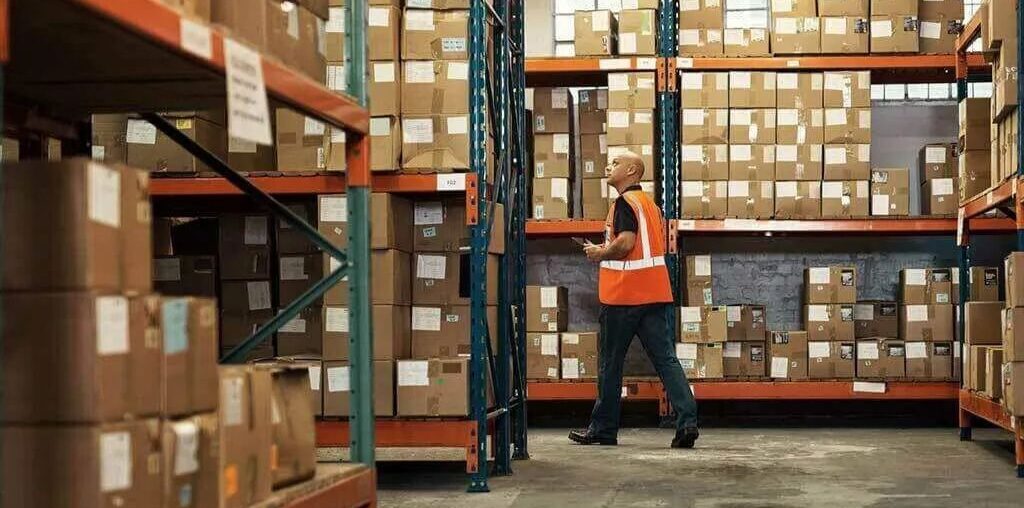When it comes to scaling your business, wholesale distributors play a crucial role in ensuring access to products, maintaining inventory, and keeping costs in check. Whether you’re starting a retail store or expanding your e-commerce platform, understanding the intricacies of wholesale distribution is key to success.
This comprehensive guide will walk you through what wholesale distributors are, their role in the supply chain, how to find reliable Distributor, and tips for building a strong business relationship with them.
What is a Wholesale Distributor?
A wholesale distributor acts as the middleman between manufacturers and retailers. They purchase products in bulk from manufacturers and sell them to retailers at a marked-up price. By bridging the gap between production and retail, distributors simplify the supply chain and make it easier for businesses to stock and sell products.
Key Features of Wholesale Distributors
- Bulk Purchases: Buy large quantities of goods at discounted rates.
- Product Variety: Offer a wide range of products from various manufacturers.
- Logistics Management: Handle storage, shipping, and distribution to retailers.
- Regional Specialization: Operate in specific regions, ensuring timely delivery.
Role of Wholesale Distributors in the Supply Chain
Wholesale distributors are pivotal in creating a seamless flow of products from the manufacturer to the end customer. Here’s how they contribute:
1. Inventory Management
Distributors store products in their warehouses, allowing retailers to access items without maintaining massive inventories themselves.
2. Cost Efficiency
By purchasing in bulk, distributors reduce the cost per unit for retailers, enabling higher profit margins.
3. Product Accessibility
Distributors make products from multiple manufacturers available to retailers, offering variety and flexibility.
4. Market Insights
Distributors often provide market data and trends to retailers, helping them make informed decisions about which products to stock.
Types of Wholesale Distributors
Depending on the industry and type of products, Wholesale Distributors can be classified into several categories:
1. General Merchandise Distributors
Offer a wide range of products, from household goods to apparel. Suitable for retail stores that stock diverse items.
2. Specialty Distributors
Focus on specific product categories such as electronics, fashion, or medical supplies.
3. Regional Distributors
Operate in specific geographic areas, ensuring faster delivery and localized customer service.
4. Online Wholesale Distributors
E-commerce platforms like Alibaba and Faire provide a digital marketplace for bulk purchasing.
How to Find Reliable Wholesale Distributors
Finding the right distributor can make or break your business. Here’s a step-by-step guide to locating the best fit:
1. Research Online Marketplaces
Websites like Alibaba, ThomasNet, and Global Sources offer directories of verified distributors across industries.
2. Attend Trade Shows
Trade shows provide opportunities to meet distributors in person, evaluate their offerings, and negotiate deals.
3. Leverage Industry Connections
Networking within your industry can lead to valuable recommendations and partnerships with trusted distributors.
4. Check Reviews and References
Always vet potential distributors by checking reviews and contacting references to ensure reliability and quality.
5. Contact Manufacturers
Reach out directly to manufacturers to get a list of their authorized distributors.
Key Factors to Consider When Choosing a Distributor
Not all distributors are created equal. Before partnering with one, evaluate the following factors:
1. Product Quality
Ensure the distributor sources high-quality products that align with your brand’s standards.
2. Pricing Structure
Compare pricing from multiple distributors to secure the best deal while maintaining profitability.
3. Delivery Speed
Fast and reliable shipping is crucial, especially for businesses with tight inventory turnover.
4. Customer Support
A distributor with excellent customer service can resolve issues quickly, minimizing disruptions.
5. Minimum Order Requirements
Check whether the distributor’s minimum order quantities align with your purchasing capacity.
Benefits of Working with Wholesale Distributors
Partnering with a Bj Wholesale distributor offers several advantages:
1. Reduced Costs
Bulk purchasing lowers the cost per unit, boosting overall profitability.
2. Streamlined Operations
Outsourcing storage and logistics to distributors simplifies business operations.
3. Access to New Products
Distributors often introduce new products from manufacturers, keeping your inventory fresh and competitive.
4. Scalability
Distributors can accommodate increasing order volumes as your business grows.
Challenges of Working with Wholesale Distributors
Despite the benefits, there are some challenges to keep in mind:
1. Dependency
Relying heavily on a single distributor can leave you vulnerable to supply chain disruptions.
2. Quality Control
Ensuring product quality is consistent requires regular monitoring and communication.
3. Pricing Fluctuations
Market changes may cause sudden increases in distributor pricing.
4. Limited Negotiation Power
Smaller businesses may have less leverage to negotiate favorable terms with large distributors.
Building Strong Relationships with Distributors
A solid relationship with your distributor can lead to better deals, faster service, and long-term growth. Here’s how to nurture this partnership:
1. Communicate Clearly
Maintain open and regular communication to address concerns and share updates.
2. Be Loyal
Distributors value long-term partnerships. Consistent orders and timely payments build trust.
3. Provide Feedback
Sharing feedback on product quality and delivery performance helps distributors improve their service.
4. Negotiate Smartly
Discuss payment terms, discounts, and delivery schedules to create a win-win agreement.
Top Wholesale Distributor Platforms
Here are some popular platforms for sourcing wholesale distributors:
1. Alibaba
A global leader in wholesale e-commerce, offering products across industries.
2. Faire
Specializes in connecting independent retailers with unique and curated product lines.
3. Wholesale Central
A directory of verified wholesalers in the U.S., suitable for small businesses.
4. Worldwide Brands
Offers a comprehensive list of certified wholesalers, particularly for e-commerce retailers.
5. ThomasNet
Ideal for industrial and manufacturing supplies, connecting businesses with U.S.-based distributors.
FAQs About Wholesale Distributors
1. How do I start working with a wholesale distributor?
Begin by identifying your product needs, researching distributors in your niche, and reaching out to negotiate terms.
2. Can I work with multiple distributors?
Yes, diversifying your distributor base can reduce dependency and ensure a steady supply of products.
3. What is the typical markup for wholesale distributors?
Wholesale distributors generally apply a 15-30% markup on products, depending on the industry and demand.
4. Do I need a license to buy from wholesale distributors?
Most distributors require a resale license or tax ID to ensure you’re a legitimate retailer.
5. How can I verify the legitimacy of a distributor?
Check their business credentials, reviews, and partnerships with recognized manufacturers.
Conclusion
Wholesale distributors are the backbone of the supply chain, offering businesses an efficient way to stock inventory, reduce costs, and access high-quality products. By choosing the right Wholesale extracts flavorfrenzy distributor, you can streamline operations, improve profitability, and scale your business with ease.
Whether you’re a startup or an established retailer, investing time in researching and building strong distributor relationships is critical for long-term success. Keep this guide handy as you navigate the world of wholesale distribution, and watch your business thrive.



